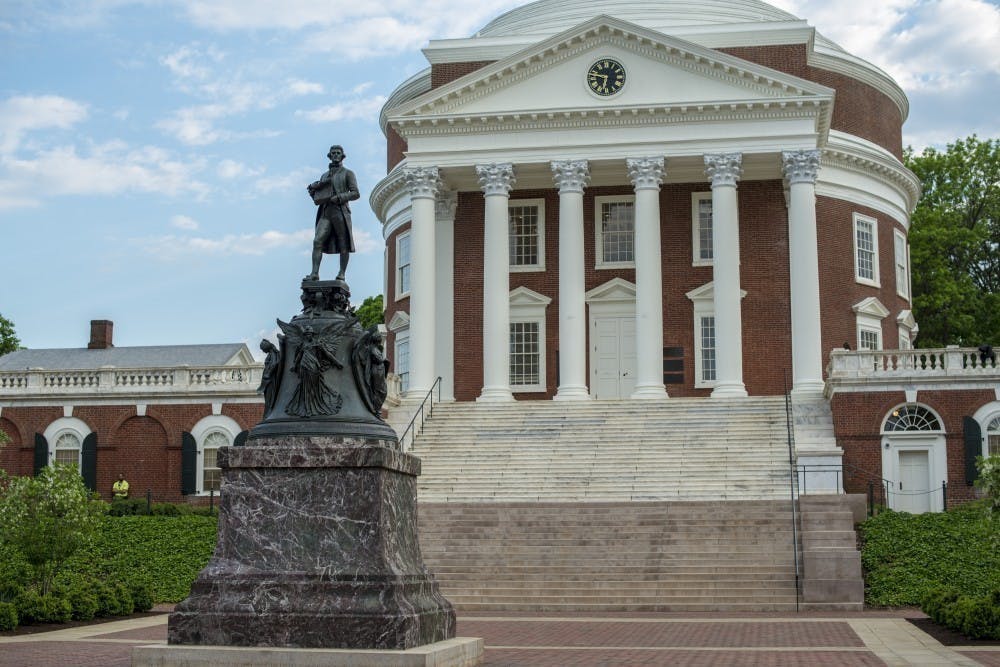中文版请点击此处
Executive Order 77 — which was signed into law March 23 by Gov. Ralph Northam — requires Virginia colleges, universities and state agencies to stop the use, sale and distribution of single-use plastics except for medical or safety reasons. Universities and state agencies have 180 days to submit a plastic pollution reduction plan and must be plastic-free by the end of 2025.
Single-use plastics are made to be disposed of immediately after use and are most commonly used in packaging and service ware. These goods are detrimental to the environment because they can sit in landfills for years before decomposing — plastic bags take 20 years to degrade while plastic straws degrade after 200 years. Single-use plastics affected by the ban include plastic cups, straws, bottles, bags, utensils and more.
“Since 2011, solid waste disposed of at landfills and incinerators in Virginia has realized a cumulative increase of two million tons to nearly 23 million tons per year,” the executive order read. “As a large producer of solid waste, the Commonwealth must lead by example and phase out its use of plastics and polystyrene items in favor of better alternatives.”
Researchers at Columbia University have estimated that each college student produces 640 pounds of solid waste each year on average, and that college students in the U.S. alone contribute over 200 million tons of waste in a year.
In an email to The Cavalier Daily, Sustainability Coordinator Lela Garner said the Office for Sustainability plans to work alongside the University to reduce single-use plastics and other waste. The Office of Sustainability is a University department that collaborates with students and faculty on sustainability initiatives.
“OFS will continuously expand recycling and composting programs for students, staff and faculty — looking at both infrastructure as well as education for purchasers and others,” Garner said. “The Office for Sustainability will also assist in identifying all sources of disposable plastic bags, single-use plastic and polystyrene food service containers, plastic straws and cutlery and single-use plastic water bottles currently used at U.Va.”
According to University spokesperson Wes Hester, single-use plastics are used in labs, at the hospital and for events, among other purposes. Due to the centralized nature of ordering, however, there is no easy way to estimate the number of single-use plastic items the University currently uses.
Once all sources of single-use plastics have been identified though, they will be replaced with compostable recyclable or reusable alternatives.
Currently, the University’s dining halls use no single-use plastic items as dine-in options are served on reusable dish ware and to-go options are served in compostable items, according to Aramark Marketing Manager Sarah Gordon.
Garner noted that Northam’s executive order aligns with the University’s 2030 Sustainability Plan and its 2030 Great and Good Plan as the elimination of single-use plastics will help the University reduce its landfill waste to 30 percent of its 2010 level.
In addition to waste reduction efforts, the 2030 Sustainability Plan seeks to make the University carbon neutral and fossil fuel free, reduce nitrogen by 30 percent, increase sustainable food options by 30 percent and reduce water consumption by 30 percent.
U.Va. Dining already has several sustainability initiatives in place that align with the 2030 Sustainability plan. Aimed at reducing waste, the Green Dining program provides composting bins at all dining halls, The Castle and West Range Cafe as well as providing recycling bins around Grounds. The program also offers free reusable tote bags, straws and utensils at Green Dining tables throughout the semester.
The amount of trash produced by the University decreased significantly during the fall semester despite the daily use of disposable masks, to-go containers and cleaning supplies. This has propelled the University close to its goal of achieving a 70 percent reduction in landfill tonnage by 2030 — from 5,000 tons to about 2,000 tons.
In an email to The Cavalier Daily, Gordon discussed other sustainability efforts in the University’s dining halls, such as the Fill it Forward Program, which encourages to students to use reusable cups rather than single-use plastic cups at dining locations. To participate, students can download the Fill it Forward app and track their carbon footprint to earn points.
“We encourage students to participate in our reusable to-go program in our dining rooms, which gives students the option to opt out of single-use to-go compostable boxes,” Gordon said. “We have suspended our personal reusable cup program due to [the] COVID-19 pandemic, however we typically offer rewards for students using reusable cups and water bottles through our Fill it Forward program.”







